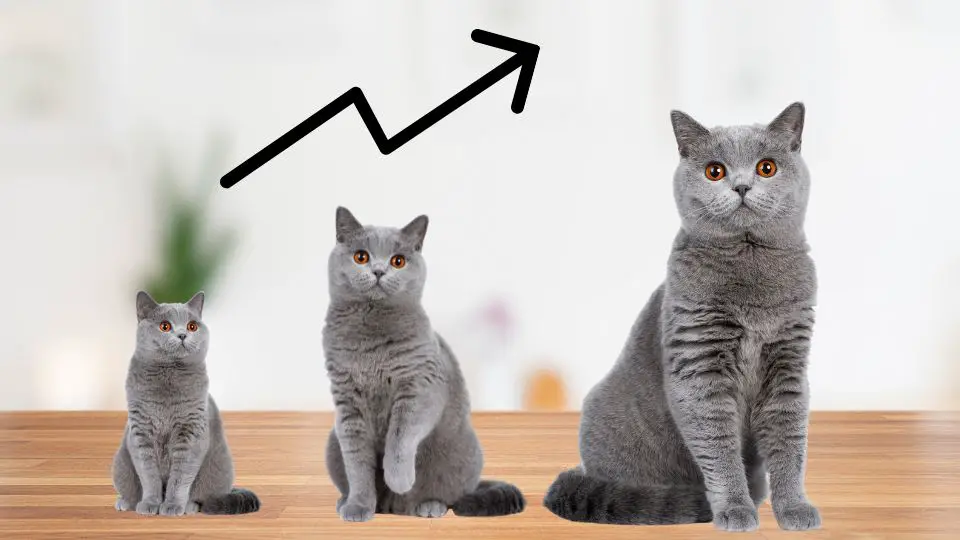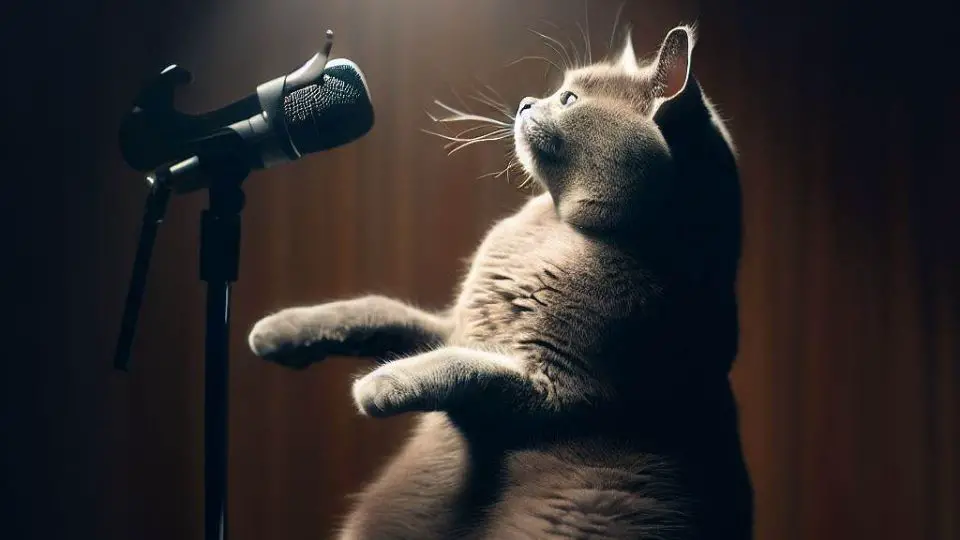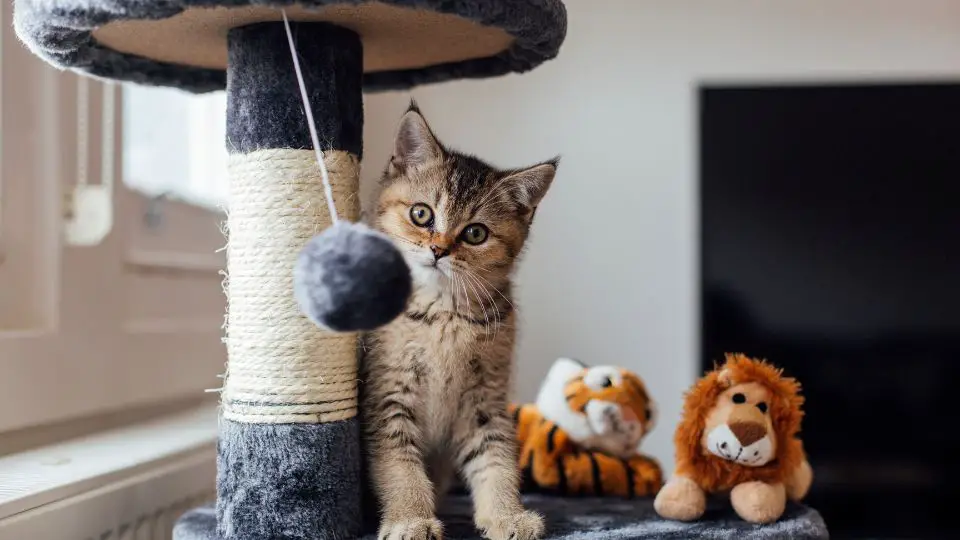British Shorthair cats are a beloved breed known for their affectionate nature, charming looks, and gentle personalities. While they are generally a healthy breed, like all cats, they are still prone to certain health problems.
In this article, we will discuss some of the common health problems that British Shorthair cats can face and provide information on how to identify and manage them.
Hypertrophic cardiomyopathy (HCM)
Hypertrophic cardiomyopathy (HCM) is a common heart disease in British Shorthair cats. It is a genetic condition that causes thickening of the heart muscles, making it difficult for the heart to pump blood effectively. While the exact cause of HCM is not known, there are several factors that may contribute to the development of the disease.
One of the main causes of HCM in British Shorthair cats is genetic predisposition. This means that cats with a family history of the disease are more likely to develop it themselves. Breeding practices that involve close relatives can also increase the risk of passing on the disease to offspring.
Environmental factors can also play a role in the development of HCM. High levels of stress, obesity, and poor diet can all increase the risk of developing heart disease.
The signs and symptoms of HCM in British Shorthair cats can vary, but they typically include a heart murmur, breathing difficulties, lethargy and weakness, and fainting or collapse. If you notice any of these symptoms in your cat, it’s important to seek veterinary care immediately.
Diagnosing HCM in British Shorthair cats typically involves a physical examination, echocardiography, and blood tests. Treatment and management options include medications to control symptoms, dietary changes, and lifestyle changes such as reducing stress and increasing exercise.
Preventing HCM in British Shorthair cats involves genetic testing and selection, as well as regular veterinary check-ups to monitor heart health. By taking steps to prevent and manage HCM, you can help your British Shorthair cat live a long and healthy life.
Polycystic kidney disease (PKD)
Polycystic kidney disease (PKD) is a genetic disorder that affects British Shorthair cats. This disease causes the formation of multiple fluid-filled cysts in the kidneys, which can eventually lead to kidney failure. In this article, we will discuss the causes, signs and symptoms, diagnosis, treatment, and prevention of PKD in British Shorthair cats.
The main cause of PKD in British Shorthair cats is a genetic mutation. This mutation causes the cells in the kidney to divide and multiply rapidly, resulting in the formation of cysts. PKD is an inherited disease, meaning that it is passed down from one or both parents to their offspring.
Signs and symptoms
The signs and symptoms of PKD in British Shorthair cats can vary depending on the severity of the disease. Some common signs include increased thirst and urination, decreased appetite and weight loss, vomiting and diarrhea, and lethargy and weakness. As the disease progresses, the cysts in the kidneys may become larger and cause more severe symptoms.
PKD can be diagnosed through a physical examination, ultrasound, and genetic testing. During a physical examination, a veterinarian may feel for enlarged kidneys or detect abnormalities in the cat’s urine. An ultrasound can confirm the presence of cysts in the kidneys. Genetic testing can also be performed to determine if a cat is a carrier of the PKD gene.
Treatment and management
There is currently no cure for PKD in British Shorthair cats, and treatment is aimed at managing the symptoms of the disease. Medications can be given to manage symptoms such as high blood pressure, pain, and nausea. Fluid therapy may also be necessary to keep the cat hydrated and maintain kidney function. Dietary changes may also be recommended, such as a low protein diet, to help reduce the workload on the kidneys.
The best way to prevent PKD in British Shorthair cats is through genetic testing and selection. Breeders can test their cats for the PKD gene and avoid breeding cats that carry the gene. Regular veterinary check-ups are also important to monitor the cat’s kidney function and detect any signs of PKD early on.
Arterial Thromboembolism
Arterial thromboembolism (ATE) is a serious condition that can occur in British Shorthair cats. ATE is a condition where a blood clot forms and then lodges in an artery, cutting off blood flow to the affected area. This can result in sudden and severe pain, paralysis of the hind legs, cold limbs, and rapid breathing and heart rate.
The causes of ATE in British Shorthair cats can vary, but some of the most common include heart disease, hyperthyroidism, obesity, and trauma. These conditions can lead to changes in blood flow, blood pressure, and clotting factors, making cats more prone to developing ATE.
Diagnosing ATE in British Shorthair cats typically involves a physical examination, imaging tests (such as X-rays and ultrasound), and blood tests. Treatment and management of ATE often includes pain management, blood clot dissolution therapy, management of underlying conditions, and rehabilitation therapy.
Preventing ATE in British Shorthair cats is key, and involves regular veterinary check-ups, weight management, and treatment of underlying conditions. By identifying and managing risk factors, pet owners can help prevent the onset of ATE and other health problems in their British Shorthair cats.
Obesity
Obesity is a growing concern for cats, including British Shorthairs. This condition can lead to serious health problems, such as diabetes, joint pain, and heart disease. In this article, we will explore the causes, signs and symptoms, diagnosis, treatment, and prevention of obesity in British Shorthair cats.
There are various factors that can contribute to obesity in British Shorthairs, including overfeeding, lack of exercise, and genetic predisposition.
Obesity can be recognized by the excessive body fat in a cat, but there are other signs to look out for as well, such as difficulty breathing, reduced activity level, and joint problems. Physical examination, body condition scoring, and blood tests can all help diagnose obesity in British Shorthair cats.
Treatment and management of obesity
Weight loss can be achieved through a combination of calorie restriction and exercise, dietary changes, and environmental enrichment.
Feeding a balanced diet, providing regular exercise, and monitoring weight and body condition can help prevent obesity in British Shorthair cats.
Dental problems
As with humans, dental health is an important aspect of a cat’s overall health. Unfortunately, dental problems are common in British Shorthair cats, with many suffering from conditions such as periodontal disease, tooth resorption, gingivitis, and oral tumors. These issues can cause discomfort and pain, making it essential for owners to understand the signs, causes, and treatments for dental problems in British Shorthair cats.
One of the primary causes of dental problems in British Shorthair cats is genetics, with some cats simply being more prone to dental issues than others. Poor dental hygiene can also lead to dental problems, with cats who are not regularly brushing their teeth or receiving professional dental cleanings being at a higher risk. Finally, a cat’s diet can also impact their dental health, with diets high in carbohydrates and sugars increasing the risk of dental problems.
Signs and symptoms of dental problems in British Shorthair cats include bad breath, tooth loss, difficulty eating or chewing, and drooling. If owners notice any of these symptoms, they should take their cat to the vet for an oral examination, dental x-rays, and blood tests to determine the underlying cause of the problem.
Treatment and management of dental problems in British Shorthair cats may involve professional dental cleaning, tooth extraction, and medications to manage pain and infection. At-home dental care, such as regular brushing of the teeth, can also be helpful in managing dental problems.
Prevention of dental problems in British Shorthair cats involves regular dental check-ups, a dental-friendly diet, and dental hygiene at home. With proper care and attention to their dental health, owners can help ensure their British Shorthair cat has a healthy and comfortable life.
Respiratory issues
Respiratory issues can be caused by a variety of factors, including viral and bacterial infections, allergies, environmental factors, and genetic predisposition. Some respiratory issues may be more common in certain breeds, including British Shorthairs, due to their facial structure and breathing patterns.
The signs and symptoms of respiratory issues in British Shorthair cats can include coughing, sneezing, difficulty breathing, wheezing, and nasal discharge. It is important to seek veterinary care as soon as possible if any of these symptoms are present to determine the underlying cause and provide appropriate treatment.
Diagnosis of respiratory issues in British Shorthair cats may involve a physical examination, radiography, bronchoscopy, and blood tests. Treatment and management options for respiratory issues may include medications to manage symptoms and infections, oxygen therapy, environmental management, and dietary changes.
Prevention of respiratory issues in British Shorthair cats involves regular veterinary check-ups, vaccinations, minimizing exposure to irritants and allergens, and maintaining good hygiene practices. By staying proactive and informed about your British Shorthair cat’s health, you can help them live a long and healthy life.
Dietary considerations for preventing health problems
Feeding your cat high-quality, nutrient-rich food is essential to their overall health. Look for foods that have a high-quality source of protein as the primary ingredient. Additionally, make sure the food contains essential nutrients such as vitamins, minerals, and omega-3 fatty acids. Avoid foods that contain fillers, artificial preservatives, and by-products, as these can be detrimental to your cat’s health. Consider consulting with your veterinarian for recommendations on the best food for your cat.
Feeding appropriate portion sizes
Overfeeding is a common problem in cats that can lead to obesity, diabetes, and other health issues. It’s essential to feed your cat the appropriate portion size based on their age, weight, and activity level. Follow the feeding guidelines on the food packaging, but adjust the portion sizes according to your cat’s individual needs.
Providing fresh water at all times
Water is essential for cats to maintain their health and well-being. It helps regulate their body temperature, aids in digestion, and keeps their organs functioning correctly. Make sure your cat has access to fresh, clean water at all times. Consider providing a water fountain or multiple water dishes in different areas of your home to encourage your cat to drink more.
Are British Shorthairs prone to illness?
Like all purebred cats, British Shorthairs can have certain health issues that they are more prone to due to their genetics. For example, British Shorthairs can be predisposed to hypertrophic cardiomyopathy, polycystic kidney disease, and obesity. However, with proper care and preventative measures, many of these health issues can be avoided or managed effectively.
Other preventative measures
One of the best things you can do for your pet’s health is to schedule regular check-ups with your veterinarian. Your vet can examine your pet to check for any signs of illness, monitor their weight and overall health, and provide preventative care such as vaccinations and parasite control. By catching potential health problems early on, you can ensure that your pet receives prompt treatment and stays healthy.
Dental Care
Just like humans, pets can develop dental problems that can lead to serious health issues. Regular dental care can help prevent dental disease, which can cause pain, tooth loss, and even organ damage. You can help maintain your pet’s dental health by brushing their teeth regularly, providing them with dental chews or toys, and scheduling regular dental cleanings with your veterinarian.
Exercise and Playtime
Physical activity is important for your pet’s overall health and well-being. Regular exercise and playtime can help keep your pet at a healthy weight, strengthen their muscles and bones, and reduce their risk of certain health problems. You can provide your pet with plenty of opportunities for exercise and play by taking them for walks, playing fetch or tug-of-war, or providing them with interactive toys or puzzle feeders.
Conclusion
As with any pet, keeping your British Shorthair cat healthy is of the utmost importance. While they are generally a healthy breed, being aware of the potential health problems that they can face and taking preventative measures can help ensure a long and happy life for your feline friend.
By providing proper nutrition, regular veterinary check-ups, dental care, and exercise, you can help keep your British Shorthair cat healthy and happy for years to come.







